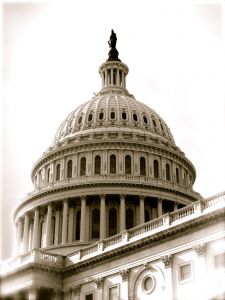The Detroit News reports that the Senate may debate an overhaul of U.S. auto safety laws this week that would make many changes to the way vehicle recalls are announced and enforced. In addition to promoting automotive industry transparency, increasing NHTSA’s funding level for the vehicle safety program, and establishing safety reporting tools like a vehicle defect hotline, S. 1449 would also address the current fines automakers face if they fail to report a defect promptly.
In order for “corporate officers of vehicle and equipment manufacturers to take personal responsibility for the documents that are requested or required to be provided to the Secretary and NHTSA,” the Advocates for Highway & Auto Safety echoed the bill’s call for dramatic increases in fine amounts for automakers who fail to fully disclose information needed to conduct safety investigations. During this debate, Congress will consider a proposal that would raise automaker fines from about $17 million to $250 million for delayed and incomplete reporting of automotive safety concerns.
While Toyota was forced to pay fines totaling almost $50 million for three NHTSA complaints that they delayed reporting their 2010 recalls, this is just a fraction of what the automaker would have had to pay if the current legislation had been in place. Yahoo points out that if the fines had not been capped by law at that time, the Japanese automaker may have had to pay as much as $13.8 billion. With such fine increases, automakers would feel greater pressure to take action and keep citizens safe by reporting faulty vehicles.
Jackie Gillan, the Vice president of Advocates for Highway and Auto Safety, a self-described “alliance of consumer, health and safety groups and insurance companies and agents,” testified in support of these fine increases. Just before the bill was formally introduced last July, she spoke in front of the Senate’s Subcommittee on Consumer Protection, Product Safety and Insurance. Gillan clearly identified her organization’s beliefs about industry leaders in her July testimony as she said the following:
Unfortunately, experience shows that unless senior company officials understand that they will be personally accountable for the accuracy of the information that is submitted, the company may not make the full disclosure needed by the agency to conduct a thorough investigation.
Proponents of this legislation point out that with the current fine system, automakers can afford to delay or avoid reporting of such vehicle issues. However, the December changes to this auto safety bill that passed the Senate Commerce Committee signal a potential shift in fortunes for the auto industry.
As expected, automobile manufacturer associations have come together to fight this bill. Detroit News quotes a joint letter the groups sent to the top two Senators, Harry Reid, D-Nev., and Mitch McConnell, R-KY., which called for the fine increases to be “scaled back to a more appropriate level.”
According to the letter sent by the automakers, “The proposed increases are so out of proportion either to the current penalty structure or the penalty structure for other manufacturers under the Consumer Product Safety Act as to appear unfairly punitive.”
Nevertheless, Detroit News explains that automakers do back some of the bill’s other provisions, “including a proposed mandate that all new vehicles be equipped with event data recorders.” However, the automotive news source also explains that automakers call the need for such legislation into question with the declining trend in vehicle crash deaths.
The automotive industry points out that in 2010, the number of road deaths fell to under 33,000, which was its lowest level since 1949. However, in her testimony before the Senate, Gillan made it clear advocates of these automotive safety changes will not be satisfied with just one year’s encouraging results. She noted the rules NHTSA has issued have “saved thousands of lives,” emphasizing the importance of continuing to push for increased vehicle standards and improved safety practices.
We will continue to follow the life of this auto safety bill and report on any future developments.


